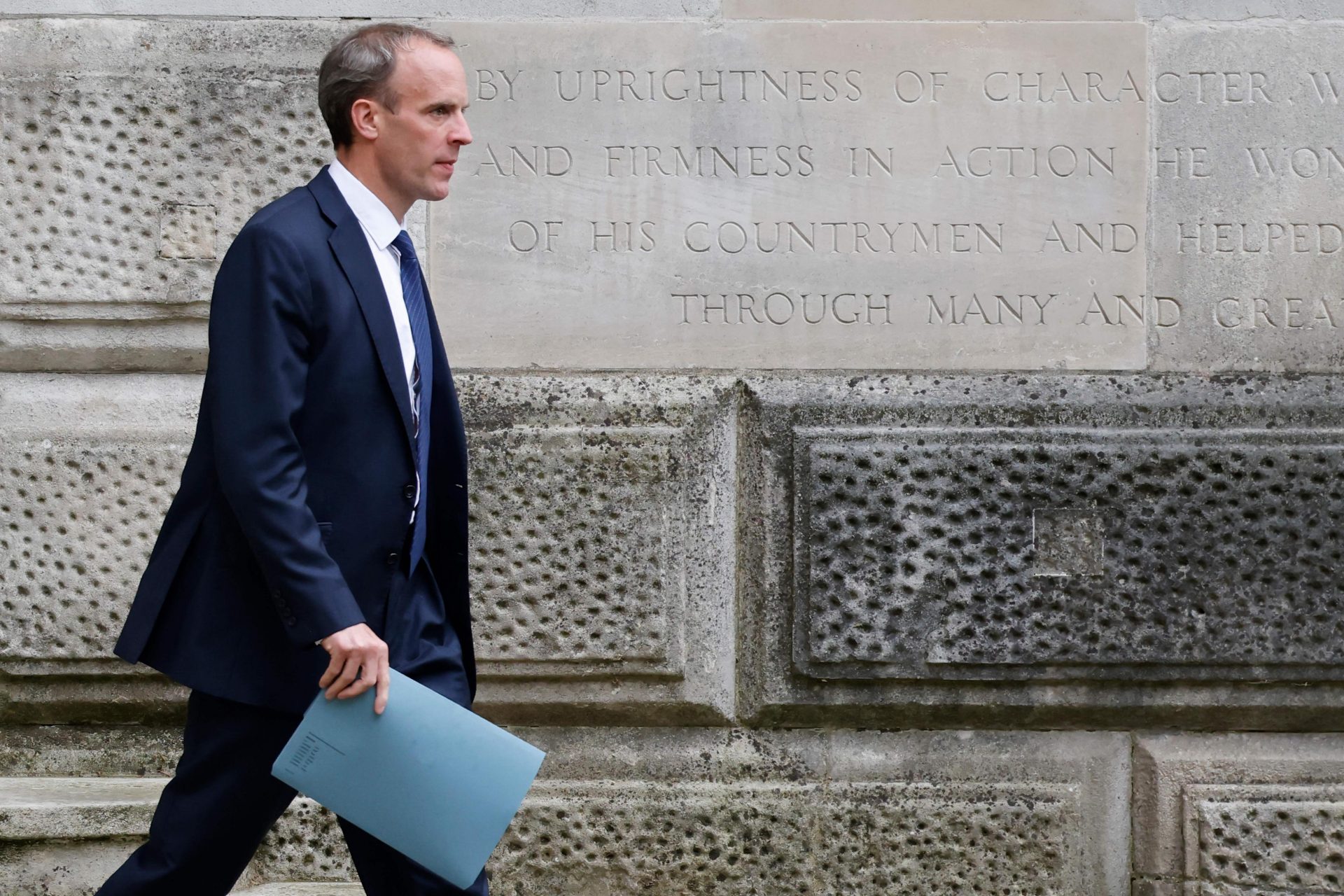And so ends the political career of Dominic Raab, former Foreign Secretary, former Deputy Prime Minister, lawyer and Brexiter. Raab was first elected as an MP in 2010 when David Cameron swept to power, and he was part of that golden cohort of Conservatives, including Liz Truss and Kwazi Kwarteng, who co-authored Britannia Unchained, the hard right free market pamphlet published by the Institute for Economic Affairs. A brooding, rather intense man, during his time as Brexit Secretary, Raab’s nickname in Brussels was “the Turnip”. It seems that his opposite numbers in the EU did not intend it as a compliment.
An old adage goes that, if you want to get the true measure of a person, give them authority and see how they treat subordinates. By that test, Raab has failed. His ministerial career was smeared with a rash of complaints from civil servants who found him abrasive, curt and hard to work with. A long investigation into complaints about Raab’s behaviour left Rishi Sunak with no choice but to chuck him into the dustbin of political history – alongside, coincidentally, his former co-authors Liz Truss and Kwasi Kwarteng.
Even so, Raab remains an interesting case study of the modern British Conservative politician. The most remarkable thing about him is that despite the career in top-flight politics, despite the bullying, the culture war posturing, the media attention and all the scandal, Raab never actually achieved anything. The rather conspicuous gap where his political achievements should be has not escaped his constituents. In the 2010 general election, Raab took the seat of Esher and Walton with a majority of 18,000. In 2019 that majority was cut to just 2,700. If he decides to stand at the next election, he will almost certainly lose his seat.
It’s no surprise his constituents have lost patience. In 2011 Raab proposed a bill that would stop transport Unions from striking unless 50% of their members agreed. That proposal was thrown out by MPs. He also suggested a new law to deport all foreign nationals who were sentenced to one year or more in jail. That also failed. In 2018, during a stint as housing secretary, he claimed immigrants were pushing up house prices, which the UK Statistics Authority then said was untrue.
He campaigned for Brexit and, having been appointed as Brexit secretary, said that he “hadn’t quite understood the full extent,” of Britain’s reliance on the Dover-Calais sea route. He promptly resigned from cabinet later that year, saying he disagreed with Theresa May’s proposed Brexit withdrawal agreement.
He ran in the 2019 Tory leadership race, but finished sixth. Boris Johnson made him Foreign Secretary, and it was in this role that the defining event of Raab’s political career occurred. On 15th August 2021, the Taliban took Kabul, in an event that marked the end of a civil war between the Islamist militants and Western-backed government forces. At the moment Afghanistan fell, Raab was on holiday with his family in Crete. The image of the foreign minister on a paddle board while a near two-decades long conflict came to a calamitous end is now seared into the collective political memory. Raab’s apparent failure to grasp that the Taliban were on the verge of success suggested a foreign secretary who was not paying attention.
Raab maintained that, despite being on holiday, he was in contact and in control at all times. Other people close to events accused him of delegating the most important questions, particularly on the evacuation of Afghan personnel who’d formerly worked with UK forces. These people were a prime target for Taliban retribution. Worse, when Raab finally got back to Westminster, according to one former Foreign office official, he seemed disengaged. He insisted on personally approving the cases of people who needed emergency evacuation, but then – the official claimed – Raab complained that the files he’d been shown were set out in the wrong format and that he wanted them re-done.
Failure to grasp the effect of his actions on the lives of other people is perhaps the signature failing of Raab’s time in office, as the report into his behaviour makes clear. But despite the bullying, the incompetence and the nastiness, Raab remains significant, on account of what he represents.
He campaigned for Brexit, without understanding the consequences. He complained about immigrants without asking why there is an immigration problem not just in Britain but across the world. And he drifted far out to the right of his own constituents, leaving behind moderate centrist Conservatism in favour of frothing culture war radicalism.
The trajectory of Raab’s career, from fresh-faced liberal Cameronista to something much nastier, is an exact mirror of the Tory Party’s own trajectory – and decline. Devoid of ideas, or any vision for Britain and its relations with our closest neighbours, they knew what they didn’t like, but offered no corresponding positive case.
A generation of Tories has created a Britain that is more divided, isolated and poorer than the country they inherited in 2010. Raab’s political career will forever be entwined with that failure.










